|
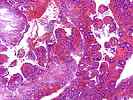


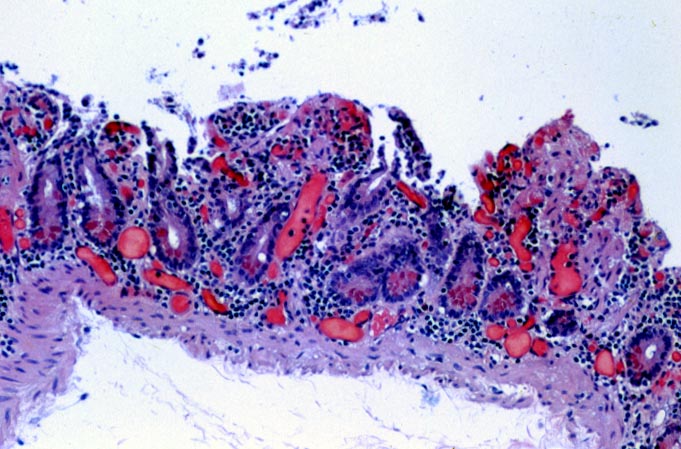
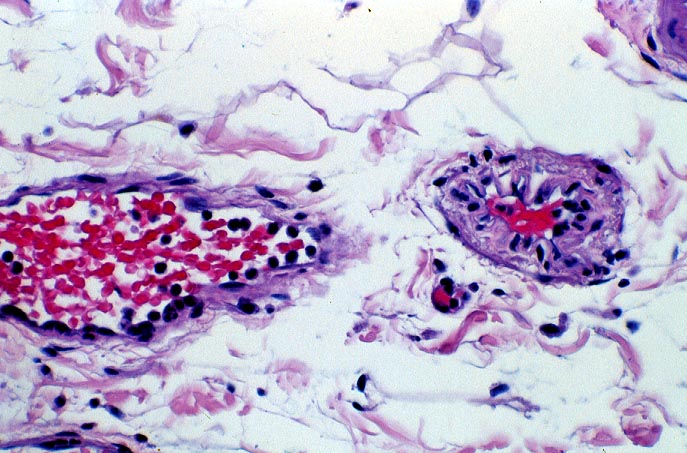
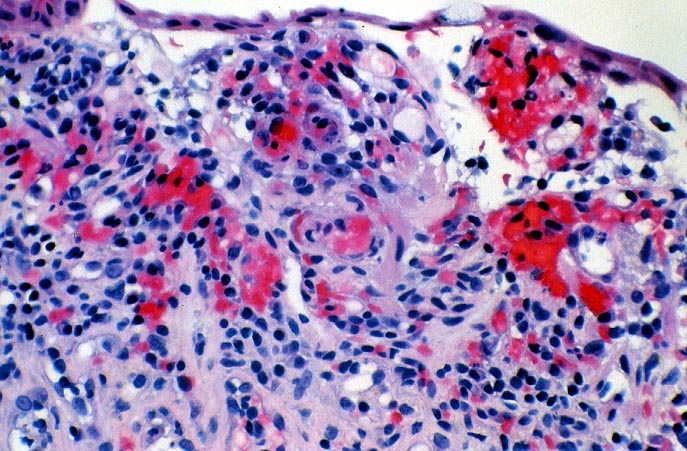
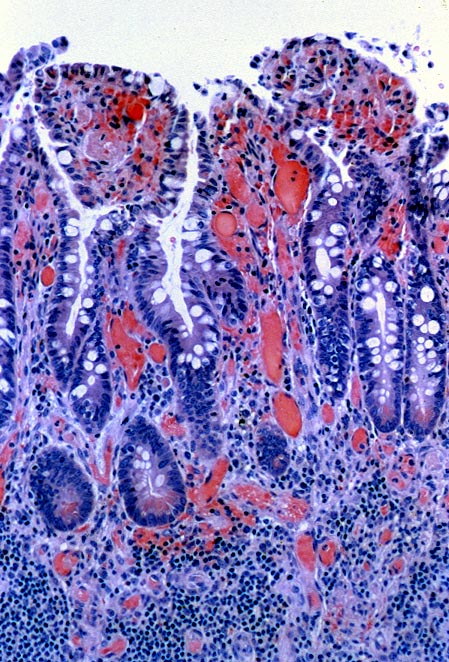
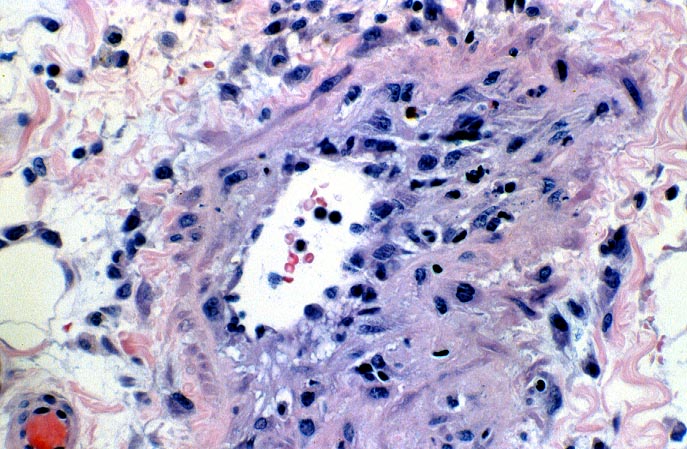
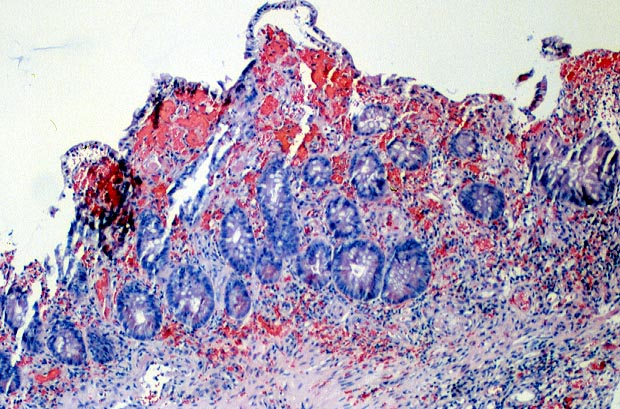
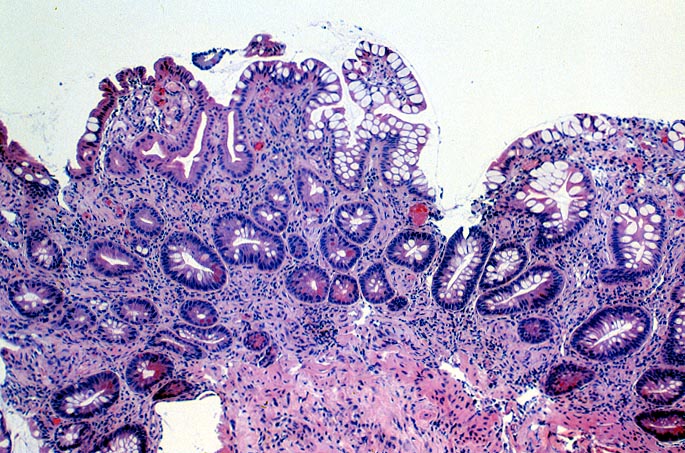
Humoral Rejection Antibodies reactive with donor antigens may have many different effects on small bowel allograft. Animal studies have shown that although preformed antibodies may cause early small bowel graft failure, they can increase the subsequent long-term graft survival (1-2). These animal studies also suggest that the small bowel graft, similar to liver graft, may be more resistant to antibody-mediated damage compared to heart and kidney grafts. Humoral rejection of human small bowel allografts have not been well documented. At the University of Pittsburgh, we have observed that some patients with peformed IgG lymphocytotoxic antibodies (positive cross-match) developed severe mucosal congestion, darkness, and focal hemorrhage within the small bowel allograft. Mucosal biopsy specimens obtained at this time often show severe congestion, neutrophilic margination and fibrin-platelet thrombi within the lamina propria microvasculature, along with focal hemorrhage, but neutrophilic or necrotizing arteritis was not seen and immunofluorescent findings were unremarkable. Based on the findings from the animal models and the experience from humoral rejection in other solid organ transplantation, these patients were treated aggressively with OKT3 and corticosteroids and subsequently recovered. Because of early recognition and aggressive treatment, no patients have developed graft failure due to humoral rejection in our experience (124 patients receiving 130 small intestinal allografts from 1990-1999, all donors ABO identical with random HLA match, 23 of 124 patients with positive cross-match). Therefore, preformed IgG lymphocytotoxic antibodies in small intestinal recipients can be associated with a characteristic clinicopathological syndrome during the early postoperative course. If recognized and treated aggressively, early graft failure can be avoided (3). The long term significance of these preformed antibodies in human small intestine transplantation has yet to be determined. REFERENCES 1. Fujisaki S, Murase N, Demetris AJ, Tanabe M, Todo S, and Starzl TE. Effects of preformed antibodies induced by who blood transfusion on small bowel trnasplantation. Transplant Proc 26:1528-1529, 1994. 2. Murase N, Fujisaki S, Tanabe M, Tsamandas AC, Todo S, Starzl TE, and Demetris AJ. Small bowel transplantation in sensitized recipients: comparison with heart, kidney, and liver grafts. Transplant Proc 26:1517-1518, 1994. 3. Wu, T., Abu-Elmagd, K., Bond, G., and Demetris, A. J. A clinicopathologic study of isolated intestinal allografts with preformed IgG lymphocytotoxic antibodies. Hum Pathol, 35: 1332-1339, 2004.
Please mail comments, corrections or suggestions to the TPIS administration at the UPMC.
If you have more questions, you can always email TPIS Administration. |
||||